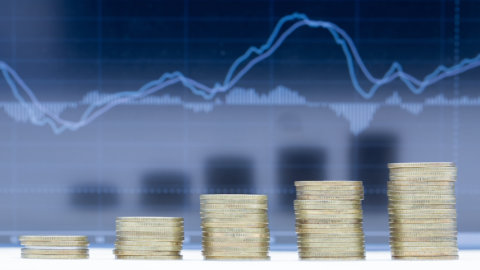Government bond yields rise and the stock exchanges appear nervous, on the alert on the one hand about the risk of inflation and on the other about the spread of variants of the coronavirus, which can reduce the effectiveness of vaccines. The final photograph of the European lists is in chiaroscuro, while Wall Street, already negative at the start, is proceeding downwards after the new record set yesterday by the Dow Jones. Sales are once again focused on the Nasdaq (-3,5%) and on technology stocks.
Piazza Affari limits the damage to 0,15% e drops to 23.063 basis points, with the balance held precariously by two oil industry stocks in the light of the 2020 accounts and the various forecasts: Tenaris +13,74% and Saipem -9,28%. The secondary market, on the other hand, is bright red, where the spread between Italian and German ten-year bonds breaks through 100 and rises to 102 basis points, an increase of 2,58%. The yield of the BTP jumps to +0,79% (from 69% yesterday), while the German one rises to -0,23%. This morning the Italian Treasury also auctioned 5 billion five-year BTPs with rates rising to the top since October: four basis points more for 0,11%.
This is an upward movement that is affecting almost all government bonds starting with US Treasuries, with the 1,49-year yield exceeding 7,5% (+XNUMX%). All because of the fears of a recovery in inflation, which drives up yields on T-bonds and displaces the stock market by moving capital from the equity market to the bond market, despite the reassuring words of Fed chairman Jerome Powell in recent days in Congress and the confirmation of an expansionary monetary policy. An attitude that weighs on the dollar and favors the rise of the euro to 1,22. Meanwhile, a common European strategy against the pandemic is being sought, given the expansion of the variants and the serious damage of the restrictions to some sectors. Prime Minister Mario Draghi met with French President Emmanuel Macron to talk about these issues, which are at the center of the two days (today and tomorrow) of the extraordinary European Council.
Meanwhile in Italy, in February, the consumer confidence index improved (from 100,7 to 101,4) and businesses (from 88,3 to 93,2), perhaps thanks to the Draghi effect, as claimed by the consumer association. Istat reports that for manufacturing and construction companies, the index recovers the decline due to the health emergency, while for services and retail trade, despite the marked increase in February, the levels are still far from those preceding the crisis.
As for consumers, the increase in the confidence index it is driven by the marked improvement in expectations on the general economic situation and those on unemployment. In the rest of the area, however, the signals are mixed. In Germany, the leading index Gfk shows a recovery of confidence in March beyond analysts' expectations, while in France in February there was a slight drop from 92 to 91 points.
Also in the light of these data and a series of important quarterly reports, in the rest of Europe Frankfurt loses 0,68%, Paris -0,24%, London -0,11%. It's flat Amsterdam, while Madrid rose by 0,6%. The results of companies such as Bayer, Axa, Standard Chartered, Telefonica and Mediaset Espana contributed to governing the session.
In Piazza Affari, the oil sector had the good and bad weather: Tenaris is among the best securities at European level following a fourth quarter 2020 down 34% but in line with market expectations. The outlook for 2021 is also improving. According to Mediobanca Securities, "the increased level of drilling activity is supporting the recovery of the company's profits which could translate into an improvement in the consensus". The broker Equita hypothesizes "a second quarter with an Ebitda of at least 232 million, so even assuming a stabilization of Ebitda in the second half we arrive at around 830-900 million for 2021".
Instead, Saipem disappoints. The group controlled by Eni (+1,08%) closed 2020 with a loss of 1,13 billion, well below expectations, and did not provide guidance for the current year due to the uncertainty linked to the pandemic . Furthermore, during the call with analysts, management said that the pandemic should weigh on Ebitda and margins also in 2021 with a return to normal in 2022.
Oil, after the sales in Asia, is currently moving in slight progress with Brent over 66 dollars a barrel. Returning to the Milanese blue chips: Diasorin rebounds, +3,73%, Generali goes up +1,73%. The banks are opposed: Intesa gains 1,15%, while Mediobanca drops by 2,12%. Among the titles in red we find Telecom, -2,84%, after the day's money. Reductions also for Cnh -2,47%, Leonardo -1,93% and Atlantia -1,76%.
Outside the main basket, Mediaset (+2,67%) benefits from the results for the fourth quarter of the Spanish subsidiary Mediaset Espana which are valued better than expected. According to a leading Italian broker, the results confirmed a large cash capacity.





